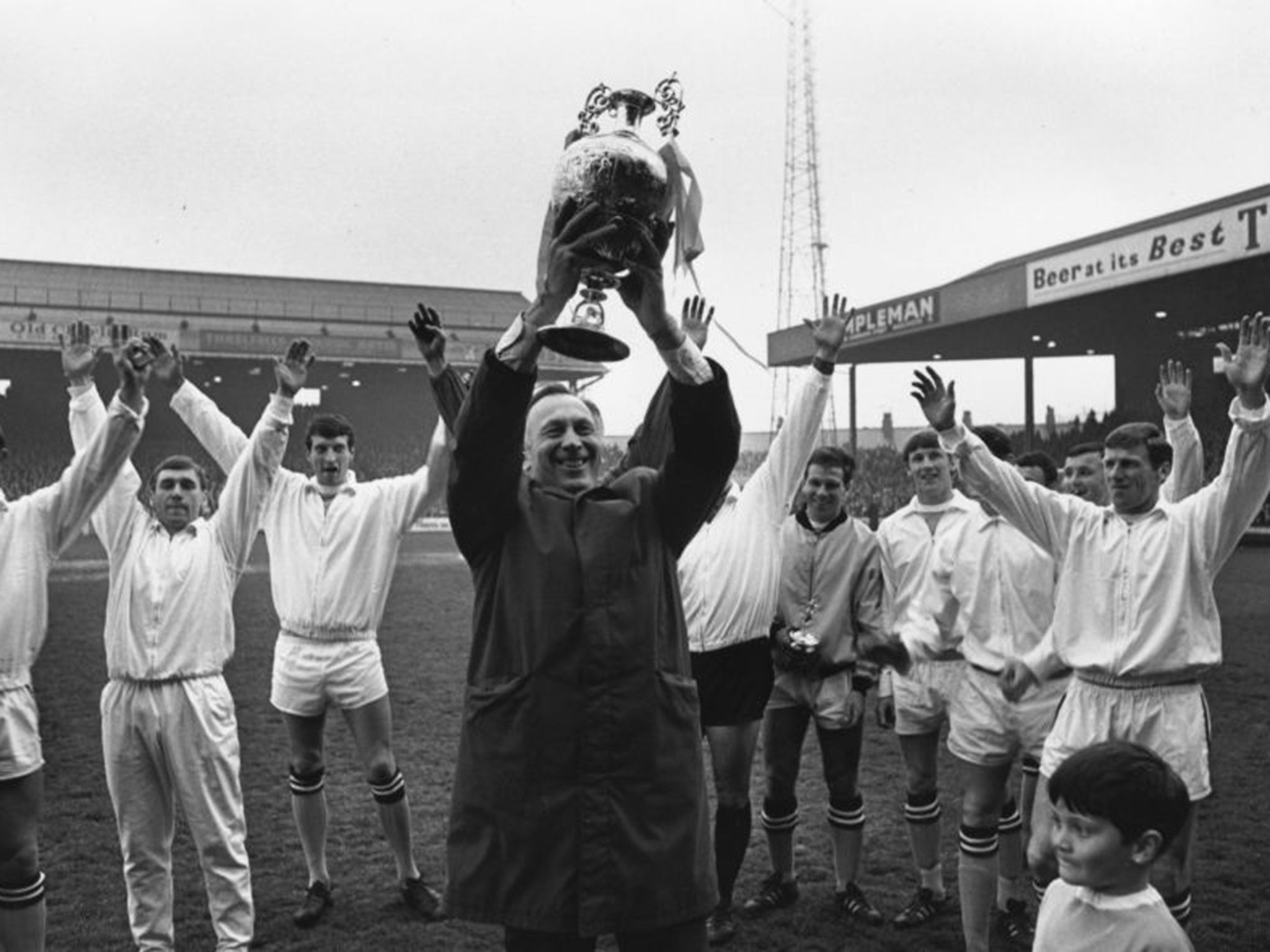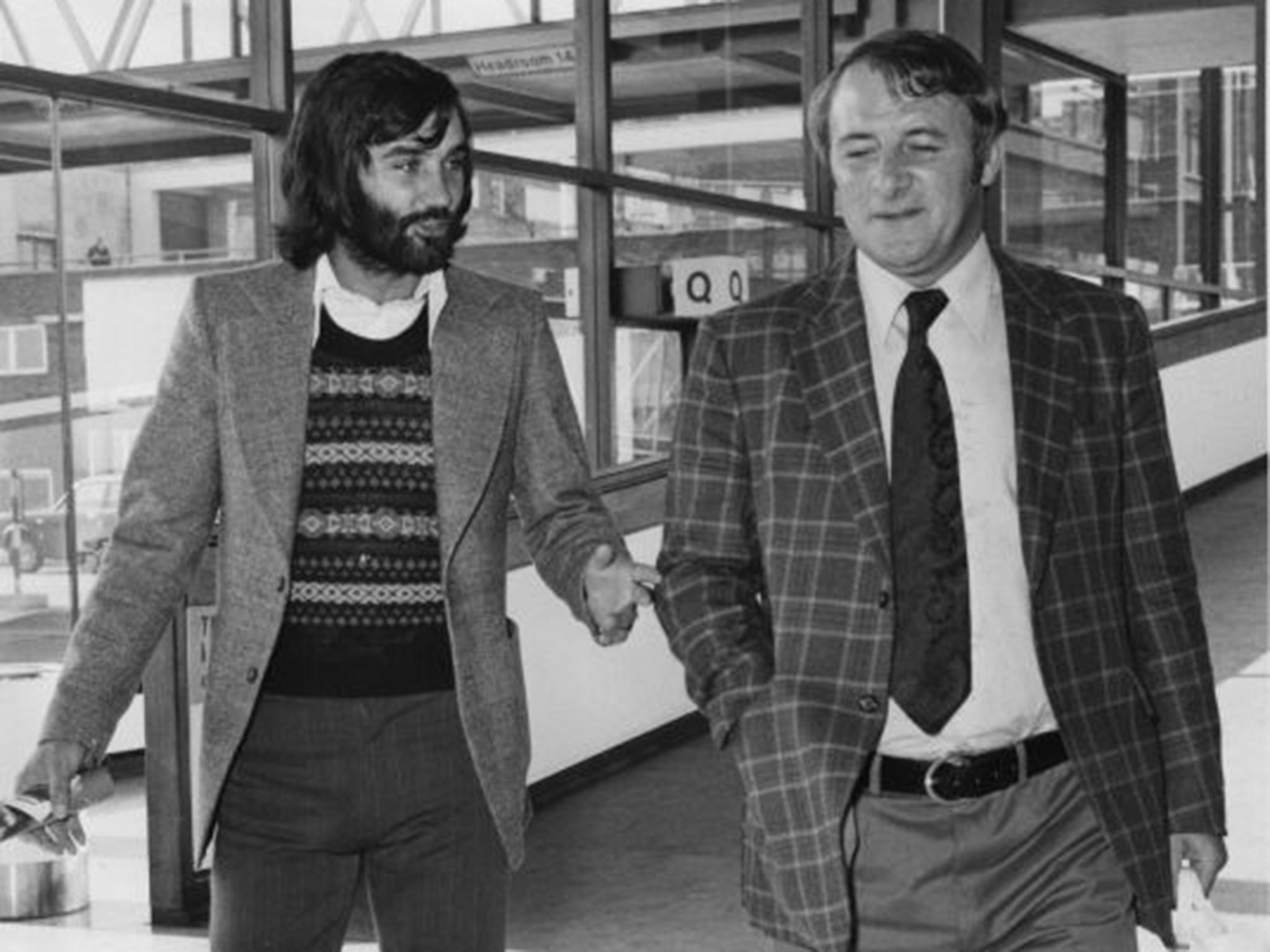When Manchester City eclipsed United after Matt Busby, United responded – as they must now
The Guardiola development might be seen as the final play in the Mancunian power shift from red to blue

Your support helps us to tell the story
From reproductive rights to climate change to Big Tech, The Independent is on the ground when the story is developing. Whether it's investigating the financials of Elon Musk's pro-Trump PAC or producing our latest documentary, 'The A Word', which shines a light on the American women fighting for reproductive rights, we know how important it is to parse out the facts from the messaging.
At such a critical moment in US history, we need reporters on the ground. Your donation allows us to keep sending journalists to speak to both sides of the story.
The Independent is trusted by Americans across the entire political spectrum. And unlike many other quality news outlets, we choose not to lock Americans out of our reporting and analysis with paywalls. We believe quality journalism should be available to everyone, paid for by those who can afford it.
Your support makes all the difference.A state of nirvana suffused the trams heading up to the Etihad from Manchester Piccadilly on Saturday morning. Thousands of dreamy-eyed men, women and children had come together in sky-blue communion for the first time since the announcement that the great Pep Guardiola was coming their way. The fans of Manchester City, for so long a marginalised cult subjugated by the big red machine across the metropolis, are football lottery winners, handed ownership of a winning storyline that takes them ever further from the days of impoverishment when Fergie’s mob ruled the earth.
Yes, they would lose 3-1 to Leicester in a disappointing display, but the direction of travel is only one way. So what if they miss out on a third Premier League title in five seasons? The unfeasible riches of Abu Dhabi ownership has brought them the most sought after coach in the world, a symbol of a rise to power that they believe has one, inexorable end: domination of the European club game.
The Guardiola development might be seen as the final play in the Mancunian power shift from red to blue, heightening the post-Ferguson chaos characterising the end of empire at United. For those of a certain vintage there is a poignant sense of déjà vu about City’s ascendancy, which mirrors the blue rising orchestrated by Joe Mercer and Malcolm Allison, who sent out Colin Bell, Francis Lee, and the Mikes Summerbee and Doyle to smash what was left of Sir Matt Busby’s creation.
In the same year Law, Charlton and Best finally lifted the European Cup, 1968, United were no longer the best team in Manchester, never mind England, with City parading the First Division title around Maine Road. The FA Cup would follow a year later as United continued a decline that would eventually lead to a relegation in 1974 confirmed during an Old Trafford derby defeat courtesy of the heel of Denis Law, by then with City.
Just as first David Moyes and now Louis van Gaal struggled to manage or contain the downward spiral in the face of aggressive empire building to the east, so Wilf McGuinness and Frank O’Farrell failed to sweep up behind Sir Matt. The forces of history proved too big for both and it took a maverick called Tommy Docherty to recognise the scale of the changes needed and ultimately, via the trauma of second-tier football, restore the club to something like the swagger of old.
The word is that United are seeking a figure who shares many of Docherty’s cavalier qualities. With Guardiola taken, the feeling is that United cannot allow the drift under Van Gaal to continue. Though the atmosphere around Old Trafford has lifted lately under the Dutchman, United slipped six points outside the Champions League places with the 1-1 draw at Chelsea on Sunday.
Unlike the position over 40 years ago, United are wrestling global forces, not just domestic. Circumstances no longer allow for a period of adjustment. The idea that Moyes would have six years to return United to a position of hegemony seems ridiculous now. Similarly, the three-year project identified by Van Gaal is equally untenable in the absence of significant green shoots sprouting early in his regime.

The rise of Leicester from relegation habitués to Premier League hauteur in the space of a season ridicules Van Gaal’s vision and understanding of the demand. The age of immediacy is upon us. There is no room to indulge the outmoded schema of a footballing coach obviously off the pace at an institution measured among the three richest commercial entities in world football.
United would have had to respond no matter who was threatening their station, just as Ferguson did when Chelsea, rescued from the brink of oblivion in 2003, set the template for monied private ownership of an English football bauble and changed the rules of the game. The vast wealth of Roman Abramovich introduced the cult of the super-coach to the Premier League, in 2004 bringing in the freshly minted European Cup winner from Porto, one Jose Mourinho, the very figure who, 12 years on, is being proposed as the antidote to Guardiola at United.
Such an appointment requires United to set aside any reservations about the style of guerrilla football Mourinho has deployed hitherto, however successfully. Relegation bought Docherty time. In came wingers Gordon Hill and Steve Coppell, a sharpshooter at centre-forward call Stuart “Pancho” Pearson, while Docherty built his defence around Martin Buchan and Brian Greenhoff, sweeping United back into the top flight at the first attempt. And in those distant days the noisy neighbours did not have the cash accelerator today’s adversaries boast.
Indeed, chairman Peter Swales, a trashy Manc millionaire who made his money in the radio and hi-fi business, sought to keep the City ball rolling post-Bell, Lee and Summerbee with the deranged purchase in 1979 of Steve Daley from Wolves for a British record £1.43m. There was a broad equivalence then among the big city clubs boasting 50,000 gates that permitted that kind of spending.
While there is something of that disposable income today, with the broadcast fees pumped into the Premier League allowing the likes of Stoke to drop £18.3m on a little known French midfielder in the January transfer window, Giannelli Imbula, and Watford to sign five recruits, farming two off to the club’s Spanish babysitters, Granada, there is no longer the time to cultivate success.
It has to be now, and in United’s case that means identifying a special one capable of taking it to Guardiola and changing the mood music on Manchester’s trams.
Join our commenting forum
Join thought-provoking conversations, follow other Independent readers and see their replies
Comments